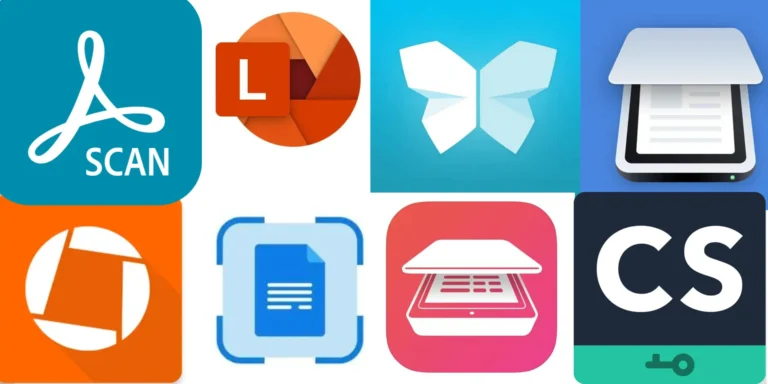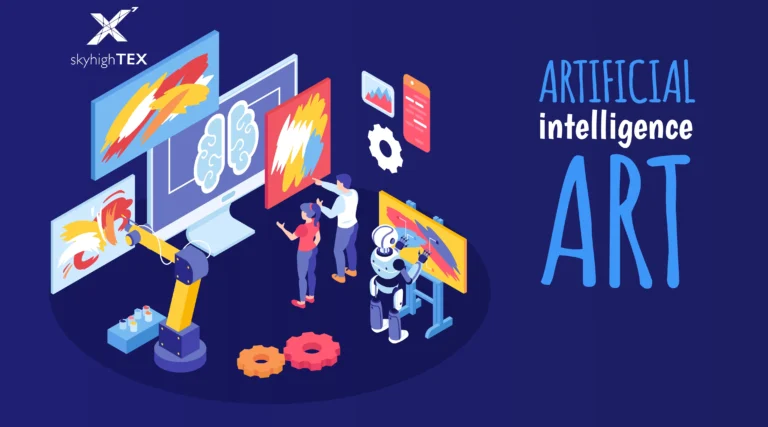How AI Changing Healthcare In A Major Way In 2023!
Machine learning models are used in medicine to scan medical data and unearth insights to assist enhance patient experiences and health outcomes. Artificial intelligence (AI) has recently made significant strides in computer science and informatics, and it is now becoming a crucial component of contemporary healthcare. So let’s look at How AI Changing Healthcare In A Major Way In 2023!
Medical practitioners are supported by AI algorithms and other applications powered by AI in clinical settings and current research.
Clinical decision assistance and image analysis are the two most frequent applications of AI in medical settings. By giving them instant access to information or research that is pertinent to their patient, clinical decision support systems assist physicians in making decisions about treatments, drugs, mental health, and other patient requirements.
AI technologies are being used to analyze CT scans, x-rays, MRIs, and other pictures in the field of medical imaging in order to look for lesions or other findings that a human radiologist would overlook.
However, there are more and more chances for AI to help doctors, scientists, and the patients they treat. There is currently little doubt that AI will play a significant role in the digital health platforms that will influence and support modern medicine.
How AI Changing Healthcare In A Major Way In 2023!
And here are the different ways that AI is changing the way doctors treat patients:
- The ability to maintain health and reduce the need for medical care is one of AI’s most significant potential advantages. People are already benefiting from the usage of AI and the Internet of Medical Things (IoMT) in consumer health applications. Applications and apps for technology support the proactive management of a healthy lifestyle and promote healthier behavior in individuals.
- AI enhances the capacity of healthcare personnel to better comprehend the daily routines and requirements of the patients they care for, and with that understanding, they are able to better provide feedback, direction, and support for maintaining health.
- With more accuracy and at an earlier stage, AI is already being used to diagnose diseases like cancer. The American Cancer Society claims that a significant number of mammograms produce false positives, which causes one in two healthy women to receive a cancer diagnosis. Reviewing and translating mammograms 30 times faster with 99% accuracy is made possible by the application of AI.
- Large volumes of health data are being unlocked and cognitive technology is being used to power diagnostics by healthcare organizations with the aid of health software. Watson is tenfold faster than any human in reviewing and storing a greater volume of medical data for every medical journal, symptom, and case study of therapy and reaction worldwide.
- Predictive analytics may support clinical decision-making and actions as well as prioritize administrative duties, and the alignment of big health data with suitable and timely judgments is essential for improving treatment.
- AI can assist clinicians in adopting a more comprehensive approach to disease management, better coordinate care plans, and assist patients in managing and adhering to their long-term treatment programs. This goes beyond scanning health records to help providers identify chronically ill individuals who may be at risk of an adverse episode.
- Robots could revolutionize end-of-life care by enabling patients to maintain their independence for longer and lowering the demand for inpatient care and nursing facilities. Robots are now capable of engaging in “conversations” and other social activities with humans to maintain cognitive function in elderly populations thanks to AI and developments in humanoid design.
What are the difficulties of Artificial Intelligence in Healthcare?
Despite having the highest healthcare spending in the world, the United States currently has inferior individual health outcomes than the majority of other industrialized countries. Additionally, a serious issue since the pandemic is physician fatigue.
People of all generations need healthcare that is tailored to their own requirements.
“Millennials want to be able to order their meal and receive healthcare advice from the same place, which is their couch. Groups like the baby boomer generation, in contrast, take a totally different tack. They have a stronger tendency to want to concentrate on being a primary care doctor. Therefore, we have the capacity to move away from these systems’ one-size-fits-all approach to care delivery and instead use data and AI to genuinely personalize it, beginning with generational care. We can then enable each generation from a to z to access and control care in accordance with their preferences.
Does AI affect Healthcare Staff?
There’s no need to worry: Healthcare providers won’t be replaced any time soon by machines, even if AI will have an impact on the job of many workers in the sector. Pattern recognition is a skill that artificial intelligence is strong at, according to Tom. It excels in sifting through enormous amounts of data to locate items that either people are unable to find or would take humans years to locate. Humans, on the other hand, excel at wisdom, common sense, empathy, and creativity, all of which are crucial when you consider the caregiving process.
Clinicians just need to comprehend the potential of this new technology and that the world is changing in order to be able to react to future trends and the incorporation of AI into the healthcare system. By creating an intelligent health system, physicians will get better at what they do rather than losing their employment, and patient experiences will also improve. Undoubtedly, everyone benefits from it.
What are the benefits of Artificial Intelligence in Healthcare?
What is the impact of AI in healthcare?
The McKinsey Global Institute has examined how AI and automation may change the nature of work in the future. The report comes to the conclusion that automation will affect the majority of jobs across sectors, but to varying degrees. Healthcare is one of the sectors with the lowest overall potential for automation; only 35% of time spent is potentially automated, and the percentage varies by type of occupation.
The analysis employs a midway scenario, which calculates that 15% of current healthcare labor hours are anticipated to be automated. Below is a graph that illustrates how many hours in a variety of healthcare vocations in a few European nations could be eliminated by automation by 2030.
FAQ
What is artificial intelligence and how is it changing healthcare?
The simulation of human intelligence processes by machines, particularly computer systems, is known as artificial intelligence (AI).
What are some of the ways AI is changing healthcare in the near future?
AI is being applied to healthcare to better diagnose and treat illnesses, create individualized care plans, streamline administrative tasks, and satisfy customers.
What are the benefits of using AI in healthcare?
Increased diagnosis accuracy and efficiency, better decision-making, improved patient safety and care, lower costs, higher customer satisfaction, and access to data-driven insights are all advantages of using AI in healthcare.
What are the challenges of using AI in healthcare?
The need for vast amounts of data, adherence to privacy laws, lack of confidence in AI-generated results, and ethical considerations like bias and fairness are a few of the difficulties associated with using AI in healthcare.
How will AI impact the healthcare industry in the future?
In the future, artificial intelligence (AI) will have a significant impact on the healthcare sector, with potential uses ranging from automating routine tasks and diagnostics to offering individualized treatments and preventive care.
Conclusion
A promising area of research and development is the application of artificial intelligence in clinical practice, which is developing quickly alongside other cutting-edge disciplines like precision medicine, genomics, and teleconsultation. Health policy should now be concentrated on addressing the ethical and financial challenges related to this pillar of the evolution of medicine, while scientific research should continue to be rigorous and transparent in creating new solutions to improve contemporary healthcare.







